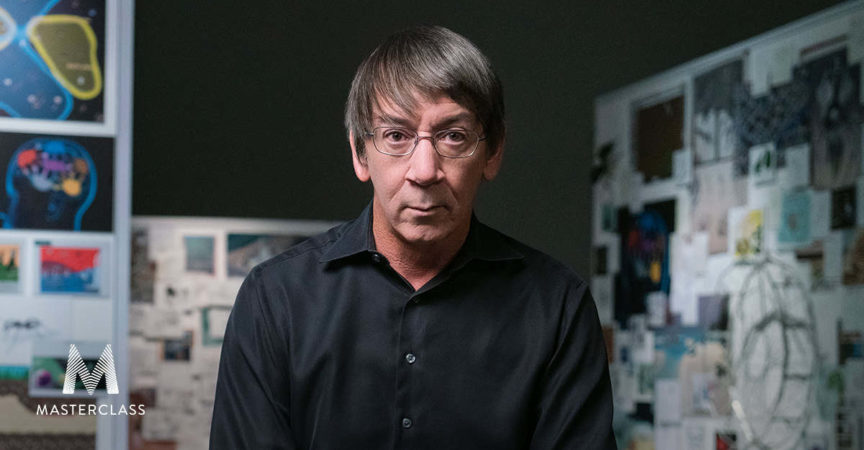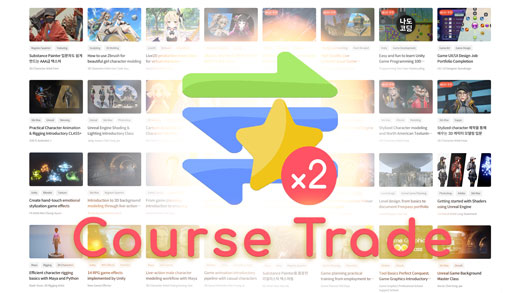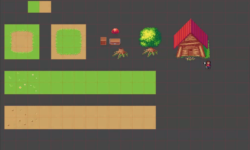Will Wright – Game Design and Theory
Release date:2019
Author:Will Wright
Skill level:Beginner
Language:English
Exercise files:Yes
Learn the art and science of game design with Will Wright, the mind behind some of the most popular simulation games of all time—SimCity and The Sims. Will teaches you how to design games that empower players and unleash their creativity. You’ll develop a toolset for understanding player psychology, as well as learn Will’s approach to generating and pitching ideas, prototyping, playtesting, and building a community.
01 The Fundamentals of Game Design
Meet your new instructor: Will Wright, visionary game designer behind The Sims. In your first lesson, you’ll learn the core tenets of Will’s multidisciplinary game design process.
02 Generating Game Concepts
For Will, the natural and social worlds are a rich source of material. Learn what inspired the creation of The Sims and Spore, and how to find and hone your own ideas through wide-ranging research.
03 Early Prototyping
Rapid prototyping is a central component of Will’s game design process. Explore various types of prototyping and learn how to “find the fun” in the early stages of the design process.
04 The Relationship Between Story and Games
Games are capable of producing emotions that other media cannot, since they allow players to create their own stories. Will teaches you how to create a sense of agency and responsibility in your players and offer them expressive tools.
05 Exploring Player Psychology
Will believes game development is as much about programming a player’s brain as it is about programming the game itself. Learn Will’s strategies for creating compelling games that take player psychology into account.
06 Design Player-Centered Experiences
Will believes that failure is critical to helping players learn, and making failure fun is a key part of game design. Learn how Will keeps players entertained throughout their experience.
07 Develop a Game Language
Games use a system of signs and symbols to communicate meaning to the player. Will teaches how to create and use your own “game language” to educate players about the rules of your game world.
08
Designing a Visual Aesthetic
Your visual aesthetic helps define your game language and impacts your overall design. Will shares tips for discovering your own aesthetic and collaborating with art directors and illustrators to achieve your vision.
09 Game Mechanics
Game mechanics govern the interactions within your game system. Will teaches you how to identify mechanics in other games, and how to choose the game mechanics that will enhance your player experiences.
10 Game Demo: Morey
Watch while Will shares his insights and perspectives with an aspiring game designer as they review her latest prototype and he gives her suggestions for areas of focus and iteration.
11 Iteration and Scoping
An iterative process can continually improve your design. Learn Will’s strategies for scoping and iterating, including his helpful “feature triage” method.
12 Prototyping Case Study: Proxi
Will and his programmer reveal and iterate on prototypes they are developing for their new game, Proxi. Witness how collaboration and prototyping can influence design decisions.
13 Playtesting
Player feedback is your most valuable resource as a designer, and the playtest is your first chance to get inside your player’s mind. Will teaches you to use playtesting to identify your audience, interpret feedback, and more.
14 Designing a Sound Aesthetic
Great sound can improve the experience of your game exponentially. Learn how to utilize music and sound design to expand your player’s imagination and heighten their emotional experience.
15 Pitching Ideas
When it comes to pitching ideas, one size does not fit all. Will shares tips for structuring your initial pitch and modifying your message to connect with diverse audiences.
16 Game Demo: Flooded Market
Will provides feedback and advice to a game designer who is in the late stages of the game design process.
17 Choosing and Understanding Your Platform
When deciding what platform your game will use, you’re also deciding which audiences it will reach. Will teaches you what to consider—such as independence, monetization, and hardware—when making this choice.
18 System Design
Understanding the fundamentals of system design will help you build more robust interactions in your game. Will shares his tips for what to take into account when designing an interactive system for your players.
19 Leadership and Collaboration
The lead designer sets the tone for the rest of the team and helps ensure a smooth production process. Learn Will’s leadership techniques and why he believes that creating a collaborative environment is so important.
20 The Future of Game Design
What’s next? Will speculates on the future and advises game designers to stay open-minded in the wake of technological advancements.
21 Final Thoughts
Will ends his class encouraging you to use your new toolset, outlook, and approach to create something innovative and surprising.
01. The Fundamentals of Game Design
02. Generating Game Concepts
03. Early Prototyping
04. The Relationship Between Story and Games
05. Exploring Player Psychology
06. Design Player-Centered Experiences
07. Develop a Game Language
08. Designing a Visual Aesthetic
09. Game Mechanics
10. Game Demo Morey
11. Iteration and Scoping
12. Prototyping Case Study Proxi
13. Playtesting
14. Designing a Sound Aesthetic
15. Pitching Ideas
16. Game Demo Flooded Market
17. Choosing and Understanding Your Platform
18. System Design
19. Leadership and Collaboration
20. The Future of Game Design
21. Final Thoughts
Game_Design_And_THeory_Files.7z





 Channel
Channel






Thanks a lot! Do u have the files like GDD template or cover sheet template that mention in the pdf?